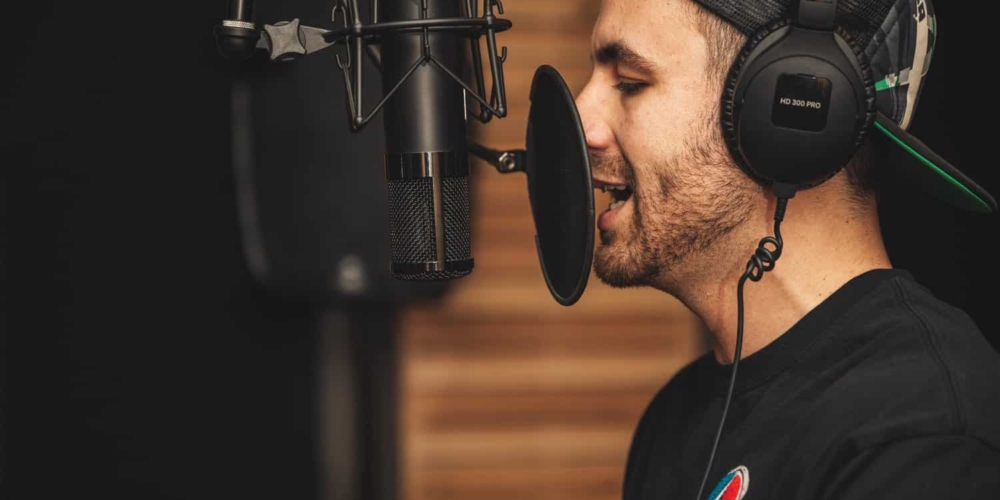How do you overcome performance anxiety? We put together a panel of musicians, psychologists and educators to discuss their best advice to overcome an almost universal experience for performing musicians. Excerpts from the hour-long conversation held live at AM Sydney’s Amphitheatre stage are below. Alternatively, listen to the live talk on AIM’s Music Industry Insights podcast on Apple Podcasts or Spotify Podcasts (or listen below).
Panelists:
Ash King: Psychologist and Facilitator, Support Act
Robert Brennan: Wellbeing Manager, Australian Institute of Music
David McLeod: Certified Buteyko Breathing Instructor; Academic Lecturer at AIM
How to Overcome Performance Anxiety
BE KIND TO YOURSELF
Ash King: “One of the most groundbreaking things I’ve learned is this idea that the things we think, the things we feel (the emotions that we experience), and our behaviour are all intertwined.
Usually, anxiety manifests as a feeling. But the feeling of anxiety is also very closely related to how we are thinking about a certain situation. Our thoughts about those situations can also cause our anxiety (not just the situation itself). To combat these thoughts, ask: What are those thoughts that are showing up? Are those thoughts the sort of things that you would tell your mate? It is very important that we learn how to have a kinder, more compassionate dialogue with ourselves.”
BREATHE
David McLeod: “Ask yourself: am I an upper chest breather? Are you breathing like that when you’re anxious? If you are – especially if you’re breathing through your mouth – you’re flicking the switch in the vagus nerve system that’s tipping you into fight and flight, and not into rest and digest.
Take your breathing down to your lower diaphragm and pop your hand on your tummy if you want. If you breathe low and slow, for 10-30 minutes, that switch is going to take you into rest and digest or the parasympathetic [nervous system].
Breathe through your mouth as much as you eat through your nose. We weren’t born to breathe through our mouths.”
GO BEYOND “POSITIVE THINKING” & AFFIRMATIONS
David McLeod: “You can’t cover up difficult emotions and painful feelings with statements like “positive vibes only.” It actually makes things worse, it actually pushes feelings down. It negates intimacy with other people, it can make people seek more addictive behaviours.
Positive thinking for me is more about seeing how things will play out when things don’t go as you’ve hoped they’re going to go. You feel the sting of disappointment, but know that there might be something else a bit better to come. If you can switch your thinking to something as simple as being grateful for the hot water in the shower, or to something bigger like “thank God I don’t live in Lismore or the Ukraine,” your experience will markedly start to be a bit different.”
EXCITEMENT INSTEAD OF ANXIETY
Ash King: “Anxiety is quite a pointy, scary word. If we acknowledge, “I have anxiety,” “I am anxious,” it can get even worse – we meld with that condition, it becomes who we are as opposed to something transient.
I’m sure that you can recognise some feelings that show up when you’re in the queue for a rollercoaster, or something is about to happen in a scary movie. When you are a performer, that’s the same thing. It’s part of the experience. Sometimes you can acknowledge that this is an excited feeling, as opposed to “branding” it as anxiety, which has a more negative connotation.”
BE PREPARED
Robert Brennan: “Preparation is everything. If you’ve got performances coming up, make sure you’re prepared before you go into that room. Nothing breeds anxiety more than not feeling prepared. And if you’re all already predisposed to being anxious, not being prepared and being predisposed to anxiety is a hard time.”
GROUND YOURSELF (LITERALLY)
Robert Brennan: “One really simple exercise is to sit down and press your feet (alternately) as hard as you can into the ground to really tense your muscles up. Do that for three to four minutes and then relax and just keep a little bit of firmness in your legs. That actually brings you back a little bit. It’s something that you might need to work at, because there’s different types of strategies that work for different types of people as well.”




